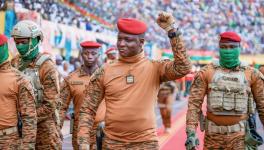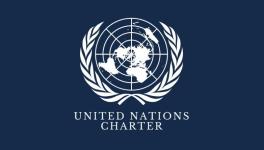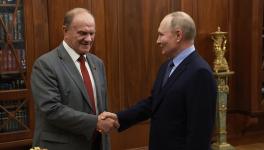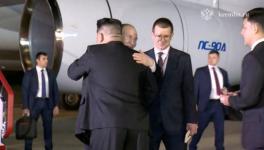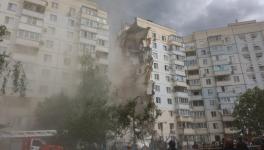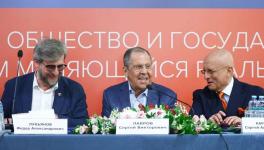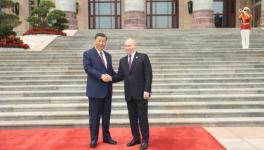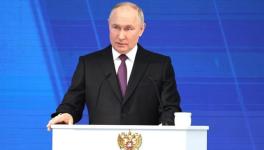Erdogan Weighs up Russia, Dares Biden
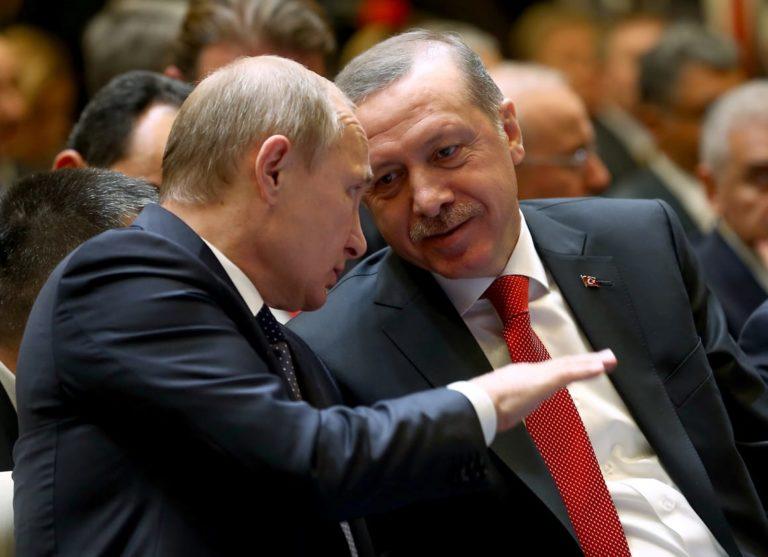
Turkish President Recep Erdogan’s (R) friendship with Russian President Vladimir Putin (L) annoys the US (File photo)
Turkish President Recep Erdogan has disclosed that Russian President Vladimir Putin may attend the nuclear fuel loading ceremony on April 27 at the Akkuyu Nuclear Power Plant.
Putin’s press secretary Dmitry Peskov deftly handled the political bombshell, choosing not to refute Erdogan’s statement. According to Erdogan, Putin’s participation in the ceremony may form part of an official visit.
Putin’s previous engagements relating to the Akkuyu NPP have been via videoconferences and at the ceremony marking the commencement of construction work on the prestigious project in April 2018, he made a promise to attend the launch ceremony in 2023. Well, Rosatom has kept its promise to complete the project on schedule, and it is Putin’s turn now.
Evidently, Erdogan cares two hoots for the International Criminal Court’s recent “arrest warrant” against Putin. Chinese President Xi Jinping has shown how to ignore it. Russia’s G20 Sherpa Svetlana Lukash said on Friday that Putin is expected to visit India twice this year — the G20 summit in September and the 2023 SCO Summit later.
Turkiye’s official stance is that “Even though Türkiye is not State Party to The Rome Statute, the activities of the ICC are closely followed and the annual meetings of the Assembly of States Parties which take place in The Hague or New York are attended by our officials.” But Erdogan is openly rubbishing the Anglo-Saxon conspiracy to demonise Putin.
Such disdainful defiance is partly in reaction to the growing US interference in Turkiye’s presidential election slated for May 14. In incendiary remarks on Sunday, Erdogan vowed “to teach America a lesson.”
However, by inviting Putin to be the chief guest at the Akkuyu NPP launch, which is undoubtedly a landmark event, Erdogan basically signals his profound appreciation for Putin’s contribution to the expansion and deepening of Turkish-Russian relations.
To be sure, the personal bonding between the two leaders has gone a long way in boosting the relationship. Erdogan will probably wear the Akkuyu NPP launch on his sleeve as his presidential legacy during his election campaign.
Indeed, the $20 billion Akkuyu NPP is the first of its kind from different angles — the only large nuclear power plant in Turkiye (with four Russian VVER-1200 reactors); the largest project in the history of Russian-Turkish cooperation; the world’s first NPP project implemented according to the BOO model (Build – Own – Operate) and so on.
The Akkuyu NPP is quintessentially a symbol of the shift in Turkiye’s foreign policies during the Erdogan era — Turkiye’s studied distancing from the western alliance system and seeking out independent avenues that reinforce the country’s strategic autonomy, with a pivot to the East at its core and an openness to Eurasian integration embedded within it. This process has led Turkiye to the doorsteps of the BRICS.
Of course, it is a different matter that the West never offered to Turkiye an equal relationship. Again, the US-backed coup attempt in 2016 to overthrow Erdogan was a traumatic experience that left him badly shaken. Turkish-American relations never really recovered.
But credit must be given that Turkiye, which has a rich history in international diplomacy, is also an astute regional power uniquely placed as a swing state and a bridge as well between the West and the East — blessed with an intuitive cognition of the brewing confrontation between the West and Russia and the struggle to shape up the world order.
Evidently, Turkiye saw the gathering storms on the horizon and understood that the decline of the West is a geopolitical reality and Turkiye ought to position itself in advance rather than be overtaken by events.
That said, Turkiye has a difficult history of relations with Russia too. This is where Erdogan’s political acumen made all the difference, as he placed the highest importance in his personal diplomacy on cultivating assiduously an optimal working relationship with Putin through the past 7-year period since the Russian Military intervention in Syria.
On his part, Putin too places high importance on personal diplomacy. Putin has spoken more than once publicly that Erdogan is not an easy person to deal with — being an interlocutor who can be stubborn in pushing Turkiye’s interests.
But that is a leadership quality that Putin respects and can even accept as a realist. Putin has spoken about occasions when differences cropped up with Erdogan but his response was invariably to double down seeking a fair solution. Erdogan appreciated the implicit goodwill, and over time, a critical mass of mutual confidence developed.
China’s mediation in normalising Saudi-Iranian relations received fulsome praise and admiration from the world community, including Israel. Detractors have fallen silent. Jerusalem Post wrote on Monday, “A warming of relations between Saudi Arabia and Iran will result in lightning-fast moves on the Middle Eastern chessboard in the near future.”
But what is not yet on the radar but destined to be equally significant is Russia’s robust efforts behind the scenes to bring about a Saudi-Syrian rapprochement and Syria’s broader integration into its Arab neighbourhood.
Unlike the US, which left a trail of death and destruction as it retreated with unfinished business from its forever wars, Russia has acquitted itself well in Syria by accomplishing its security mission to defeat the terrorist threat to the government, and thereafter following up by putting political and diplomatic underpinnings to boost that country’s stabilisation and reconstruction as well.
It is entirely conceivable that Putin utilised every opportunity with Egyptian President Sisi to engage with Assad. Incidentally, the Egyptian Foreign Ministry has highlighted that Foreign Minister Sameh Shoukry’s discussions with the visiting Syrian Foreign Minister Faisal Mekdad in Cairo on Saturday were focused on “supporting the Syrian people to restore (the country’s) unity and sovereignty over its whole territories.”
At the end of the day, however, Putin’s personal diplomacy is at its best in his efforts to restore Turkey’s fractured relationship with Syria. Putin sees that a convergence between Ankara and Damascus is not only possible but is an imperative need for both countries as well as for peace and security of the Levant.
Basically, Putin espouses the continued relevance of the1998 Adana Agreement as the basis for effectively tackling the Kurdish separatist challenge that reduces the scope for Washington to fish in troubled waters and even prompt it to review its occupation of one-third of Syrian territories on the pretext of fighting terrorism.
Erdogan has come to understand that Washington is pursuing an ulterior agenda by aligning with the militant Kurdish groups in northern Syria who foster cross-border terrorism against Turkiye, and therefore, Ankara stands to gain by working with Damascus.
Ideally, with an eye on the elections in May, Erdogan would have liked to meet President Assad, sensing that the Turkish domestic opinion also favours a Turkish-Syrian rapprochement.
But Turkish occupation of Syrian territory remains an obstacle. Russia is working hard to tackle the issue. There is a chance that the forthcoming quadrilateral talks between the deputy foreign ministers of Türkiye, Russia, Iran and Syria (which may take place in Moscow this week) sees light at the end of the tunnel.
If that happens, Putin will have successfully pushed through a historic breakthrough, and his visit to Turkiye for the ceremonial launch of Akkuyu NPP may transform as a defining moment in the geopolitics of Eastern Mediterranean and the Black Sea region.
MK Bhadrakumar is a former diplomat. He was India’s ambassador to Uzbekistan and Turkey. The views are personal.
Get the latest reports & analysis with people's perspective on Protests, movements & deep analytical videos, discussions of the current affairs in your Telegram app. Subscribe to NewsClick's Telegram channel & get Real-Time updates on stories, as they get published on our website.











